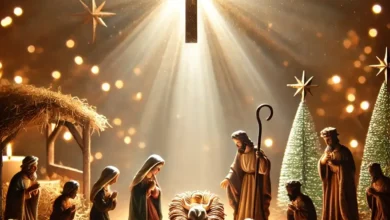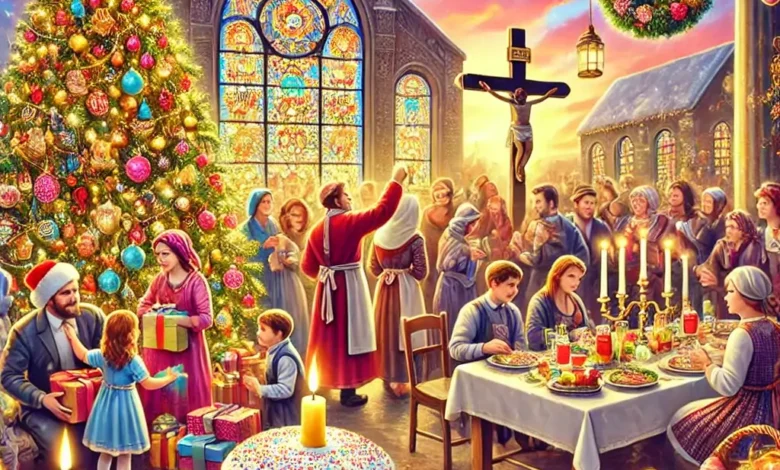
Christian Holidays: A Comprehensive Review of All Holidays and Celebrations
فرست محتوا
- 1 Christian Holidays: A Comprehensive Review of All Holidays and Celebrations
- 1.1 Introduction
- 1.2 Main Christian Holidays and Their Dates
- 1.3 Lesser-known Christian Holidays
- 1.4 Special Christian Celebrations in Different Communities
- 1.5 Important Symbols in Christian Holidays
- 1.6 Impact of Christian Holidays on Global Art and Culture
- 1.7 Christmas: The Birth of Jesus Christ
- 1.8 Easter: The Resurrection of Jesus Christ
- 1.9 Maundy Thursday: The Last Supper of Jesus
- 1.10 Good Friday: The Crucifixion of Jesus
- 1.11 Holy Saturday: A Day of Silence and Reflection
- 1.12 Palm Sunday: The Triumphant Entry of Jesus into Jerusalem
- 1.13 Pentecost: The Descent of the Holy Spirit
- 1.14 Ascension Day: The Return of Jesus to Heaven
- 1.15 Trinity Sunday: Commemoration of the Holy Trinity Teaching
- 1.16 Lenten Season: Time of Fasting and Repentance
- 1.17 Annunciation: Announcement of Mary’s Pregnancy
- 1.18 Palm Sunday: The Triumphant Entry of Jesus into Jerusalem
- 1.19 Conclusion
- 1.20 Questions and Answers
- 1.20.1 When is Christmas celebrated?
- 1.20.2 What is Easter?
- 1.20.3 What does Good Friday mean?
- 1.20.4 When is Pentecost celebrated?
- 1.20.5 What is the Lenten season?
- 1.20.6 What is Palm Sunday and when is it celebrated?
- 1.20.7 What does Pentecost mean?
- 1.20.8 What is the purpose of the Lenten season?
- 1.20.9 When is Good Friday celebrated?
- 1.20.10 What role does Epiphany play in Christianity?
- 1.20.11 What does the Easter egg symbolize?
- 1.20.12 What is Holy Saturday and when is it celebrated?
- 1.20.13 What does Ascension Day mean?
- 1.20.14 When is Trinity Sunday and what does it mean?
- 1.20.15 When is the Annunciation celebrated?
Christian Holidays: A Comprehensive Review of All Holidays and Celebrations
Christian holidays, as one of the most important parts of the religious calendar, include celebrations and rituals that honor significant events in the life of Jesus Christ and his teachings. These holidays range from Christmas, which commemorates the birth of Christ, to Easter, which celebrates his resurrection from the dead, each having its own special meaning and being celebrated in various ways around the world. In this article, we will provide a complete and comprehensive review of all Christian holidays and celebrations to familiarize you with the importance and profound impacts of each of these religious events.
Introduction
Religious holidays in Christianity provide an opportunity for renewing faith, reflecting on the teachings of Jesus Christ, and commemorating significant historical religious events. Each of these celebrations has a deep meaning connected to important events in the Holy Bible and the teachings of Christ. These holidays are celebrated in the Christian calendar based on a specific time cycle. In this article, we will examine all Christian holidays, from Christmas to Palm Sunday and the Annunciation, and analyze the meaning, traditions, and ways of celebrating each one in detail.
Main Christian Holidays and Their Dates
| Name of Holiday | Date of Celebration | Meaning and Concept |
|---|---|---|
| Christmas | December 25 | Birth of Jesus Christ |
| Easter | Between March 22 and April 25 | Resurrection of Jesus Christ from the dead |
| Maundy Thursday | Thursday of Holy Week | Last Supper of Jesus with the Apostles |
| Good Friday | Friday before Easter | Day of the crucifixion of Jesus Christ |
| Holy Saturday | Saturday before Easter | Day of Jesus’ death and burial |
| Palm Sunday | Sunday before Easter | Jesus’ entry into Jerusalem and the people’s reception |
| Pentecost | 50 days after Easter | Descent of the Holy Spirit upon the Apostles |
| Ascension Day | 40 days after Easter | Ascension of Jesus Christ to heaven |
| Trinity Sunday | Sunday after Pentecost | Commemoration of the Holy Trinity teaching |
| Fig Monday | Monday of Holy Week | Jesus’ curse of the fig tree |
| Holy Tuesday | Tuesday of Holy Week | Teachings of Jesus and discussions with religious leaders |
| Annunciation | March 25 | Announcement of Mary’s pregnancy by the angel Gabriel |
| Palm Sunday | One week before Easter | Jesus’ entry into Jerusalem |
| Day of Promise | Every year | Announcement of the birth of the Savior |
| Holy Week | Week before Easter | Remembrance of the final days of Jesus Christ’s life |
| Lenten Season | 40 days before Easter | Time of fasting and repentance |
Lesser-known Christian Holidays
In addition to well-known Christian holidays like Christmas and Easter, there are other holidays that are less recognized but hold important meanings and teachings in the Christian calendar. These celebrations are often honored by various Christian communities, especially in specific regions of the world.
Epiphany
Epiphany, or “The Visit of the Magi,” celebrated on January 6, is one of the important holidays in both Eastern and Western churches. This holiday commemorates the day when the three Magi from the East came to Bethlehem and paid homage to the newborn Jesus. This holiday signifies the manifestation of Jesus as the Messiah and King of the world.
Corpus Christi
Corpus Christi is a religious celebration that is honored in many countries, especially in Catholic churches. This holiday is celebrated on the first Thursday after Trinity Sunday and honors the Eucharist and the sanctity of the body and blood of Christ. On this day, Christians demonstrate their loyalty to the sacrifice of Jesus by holding special Eucharistic ceremonies.
Transfiguration
The Transfiguration, celebrated on August 6, is another lesser-known Christian holiday. This holiday commemorates the day when Jesus was transfigured on Mount Tabor, and his face shone like the sun. This event symbolizes spiritual transformation and divine light and is honored in various churches with prayers and special ceremonies.
Maundy Thursday
Maundy Thursday, which is celebrated on Holy Thursday, is one of the important holidays in both Eastern and Western churches. On this day, the ceremony of washing the feet of the Apostles by Jesus is remembered. This holiday symbolizes humility, service, and love for others, which are prominent in the teachings of Christ.
Special Christian Celebrations in Different Communities
In addition to famous Christian celebrations like Christmas and Easter, Christians around the world also hold special and local celebrations that are directly related to the history, culture, and local traditions of each community. These celebrations serve as part of the identity of local Christians and strengthen cultural and religious ties.
Saint Patrick’s Day
Saint Patrick’s Day is one of the important Christian celebrations in Ireland, held annually on March 17. This celebration honors Saint Patrick, the Christian missionary who played a significant role in converting Ireland to Christianity. On this day, people wear green clothes and carry the three-leaf clover, which symbolizes the Holy Trinity. For more information about Saint Patrick, read more.
Saint George’s Day
On April 23, Christians in Britain, especially the English, celebrate Saint George’s Day, the patron saint of England. This day commemorates the sacrifice and bravery of Saint George, who symbolizes resistance and Christian faith in the face of adversity. During this celebration, the red cross on a white background, which is the symbol of Saint George, is displayed throughout the country. For more information about this celebration, you can refer to this reputable source.
Reformation Day
Reformation Day, celebrated on October 31 by Protestant Christians, commemorates the religious reforms of Martin Luther. On this day, Christians remember how Luther initiated a movement by publishing his 95 Theses in 1517, which had a significant impact on the history of Christianity. For more information about the Reformation movement, refer to this link.
Important Symbols in Christian Holidays
Christian holidays not only provide opportunities to remember significant events in the history of Christianity but also utilize specific symbols that have helped deepen the meaning of these holidays over time. Below, we will examine some of the most important symbols in Christian holidays:
Christmas Tree
The Christmas tree is one of the most recognized symbols of Christmas, adorned with various decorations, lights, and a star on top, representing the joy and light of Christ in the world. This symbol signifies the birth of Jesus and the light of hope that it brings.
Easter Egg
The Easter egg symbolizes new life and the resurrection of Jesus Christ. In many cultures, people decorate colorful eggs as a sign of rebirth and hope. Family games like Easter egg hunts are also popular traditions of this holiday.
Palm Branches
On Palm Sunday, palm branches symbolize victory and the triumphant entry of Jesus into Jerusalem. On this day, people welcomed him with palm branches and recognized him as the king and divine prophet.
Cross
The cross, as one of the main symbols of Christianity, represents the sacrifice and offering of Jesus for the salvation of humanity on Good Friday. Special ceremonies are held on this day that focus on this symbol, and Christians remember Jesus’ sacrifice through prayers and supplications.
Holy Spirit
On Pentecost, the Holy Spirit descended upon the Apostles in the form of flames of fire, granting them the power to speak in different languages. This symbol signifies the beginning of the Apostles’ global mission to spread the message of Christ.
Impact of Christian Holidays on Global Art and Culture
Christian holidays, especially Christmas and Easter, are not only significant in religious ceremonies and church celebrations but have also had a profound impact on art, music, literature, and global culture. Many prominent artistic works, whether in paintings or classical music, have been inspired by events related to these holidays.
Religious Paintings Related to Christmas and Easter
Many famous paintings in the history of world art depict events related to the birth and resurrection of Jesus Christ. Artists like Leonardo da Vinci and Michelangelo have created renowned works in this field that continue to inspire artists and audiences worldwide.
Religious Music Related to Christian Holidays
Christian holidays have inspired many classical and religious music pieces. Famous works like “Christmas Oratorio” by Johann Sebastian Bach and “Messiah” by George Frederick Handel are among the works that have had a profound impact on the world of music, focusing on significant events such as the birth and resurrection of Christ.
Religious Literature and Poetry
Christian holidays have also inspired many writers and poets throughout history. Literary works like “A Christmas Carol” by Charles Dickens and religious poems that celebrate important Christian holidays are still considered prominent works in world literature.
Christmas: The Birth of Jesus Christ
Christmas, celebrated on December 25, is one of the largest holidays in Christianity, commemorating the birth of Jesus Christ. Christmas signifies the arrival of light and the Savior into the world and is a symbol of joy, hope, and love.
Traditions and Symbols of Christmas
One of the most famous symbols of Christmas is the Christmas tree, adorned with beautiful decorations, lights, and a star on top, symbolizing the joy and light of Christ in the world. Additionally, well-known figures like Santa Claus and the Star of Bethlehem hold special places in this celebration. The Eucharistic ceremony in churches and giving gifts to loved ones are also among the traditions of this holiday.

Easter: The Resurrection of Jesus Christ
Easter, one of the most important holidays in Christianity, commemorates the resurrection of Jesus Christ after his crucifixion. This holiday signifies the victory of life over death and hope for resurrection and eternal life.
Traditions of Easter
On Easter, colorful eggs are decorated as symbols of new life, and families engage in Easter egg hunts. This celebration is held in churches with special Eucharistic ceremonies and prayers. Additionally, Easter provides an opportunity for reflection and prayer for spiritual resurrection and return to God.
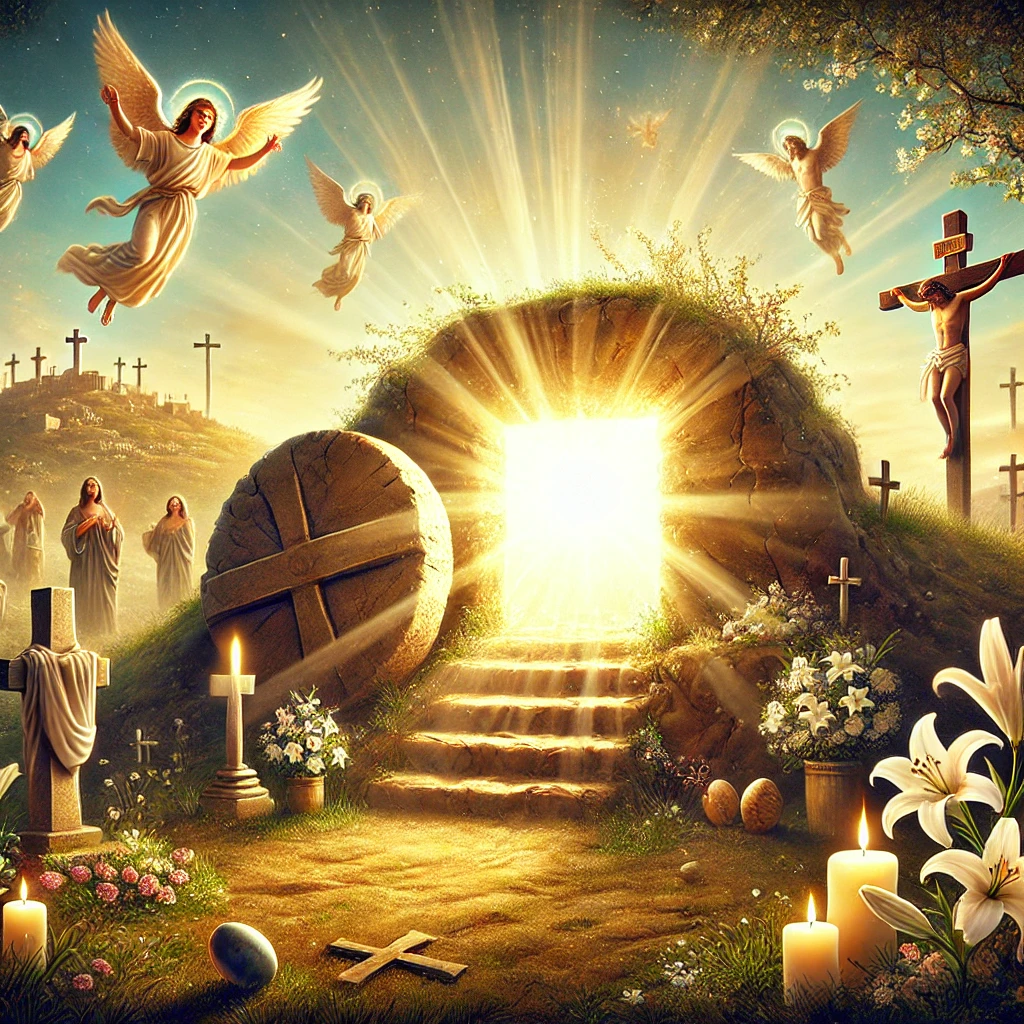
Maundy Thursday: The Last Supper of Jesus
Maundy Thursday, or Holy Thursday, commemorates the Last Supper of Jesus Christ with the Apostles. At this supper, Jesus presented bread and wine as symbols of his body and blood to the Apostles.
Importance of Maundy Thursday
This day reminds us of Jesus’ love and sacrifice for humanity. On this day, the Eucharistic ceremony is held in remembrance of the Last Supper, and Christians engage in prayers and supplications in memory of that day.
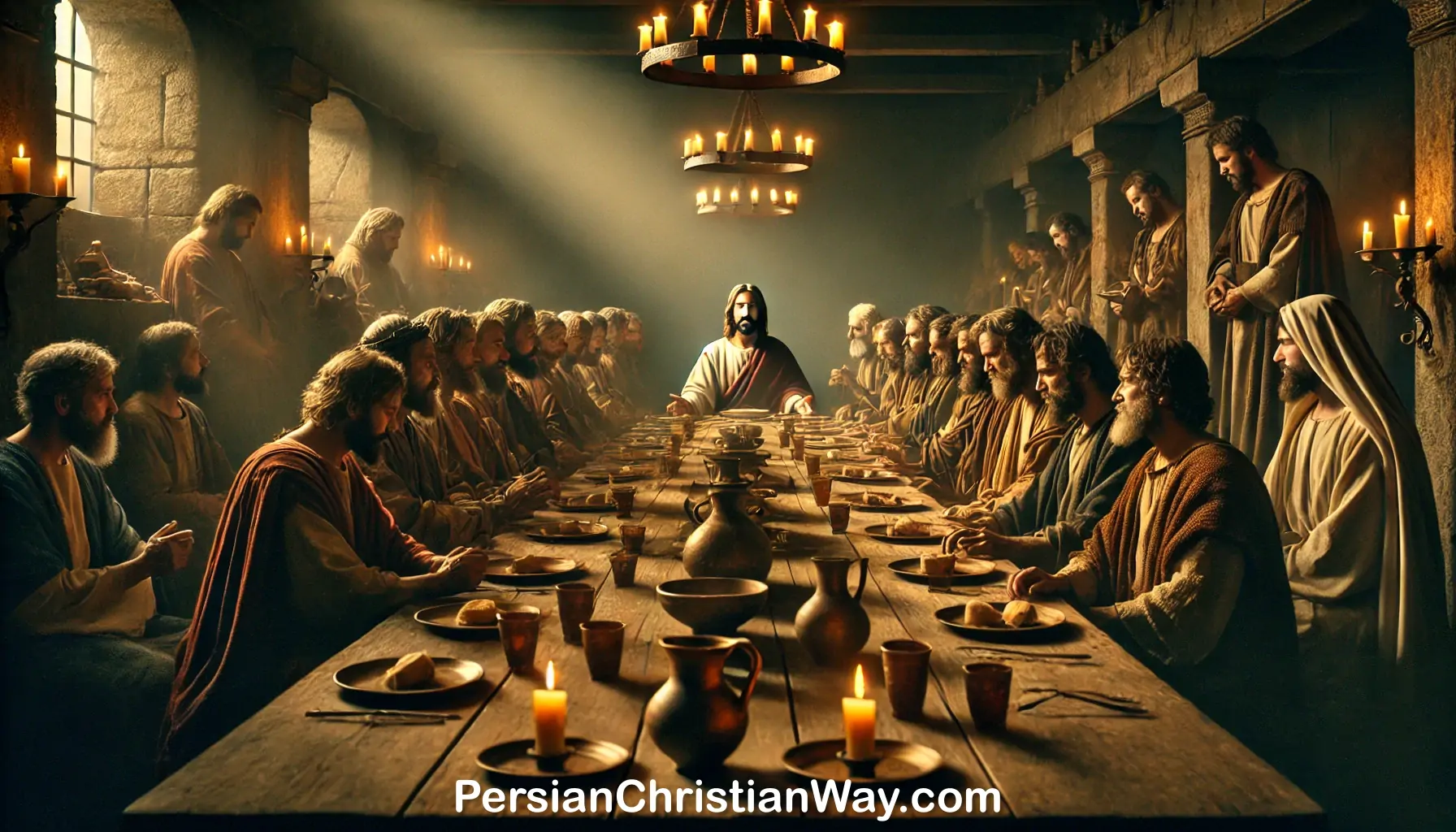
Good Friday: The Crucifixion of Jesus
Good Friday commemorates the crucifixion of Jesus Christ, who sacrificed himself for the salvation of humanity from sins. This day is one of the holiest days in Christianity and is accompanied by prayers and supplications.
Traditions of Good Friday
On this day, Christians engage in prayers and many fast. Additionally, reenactments of the crucifixion of Jesus are held in many churches and Christian communities.
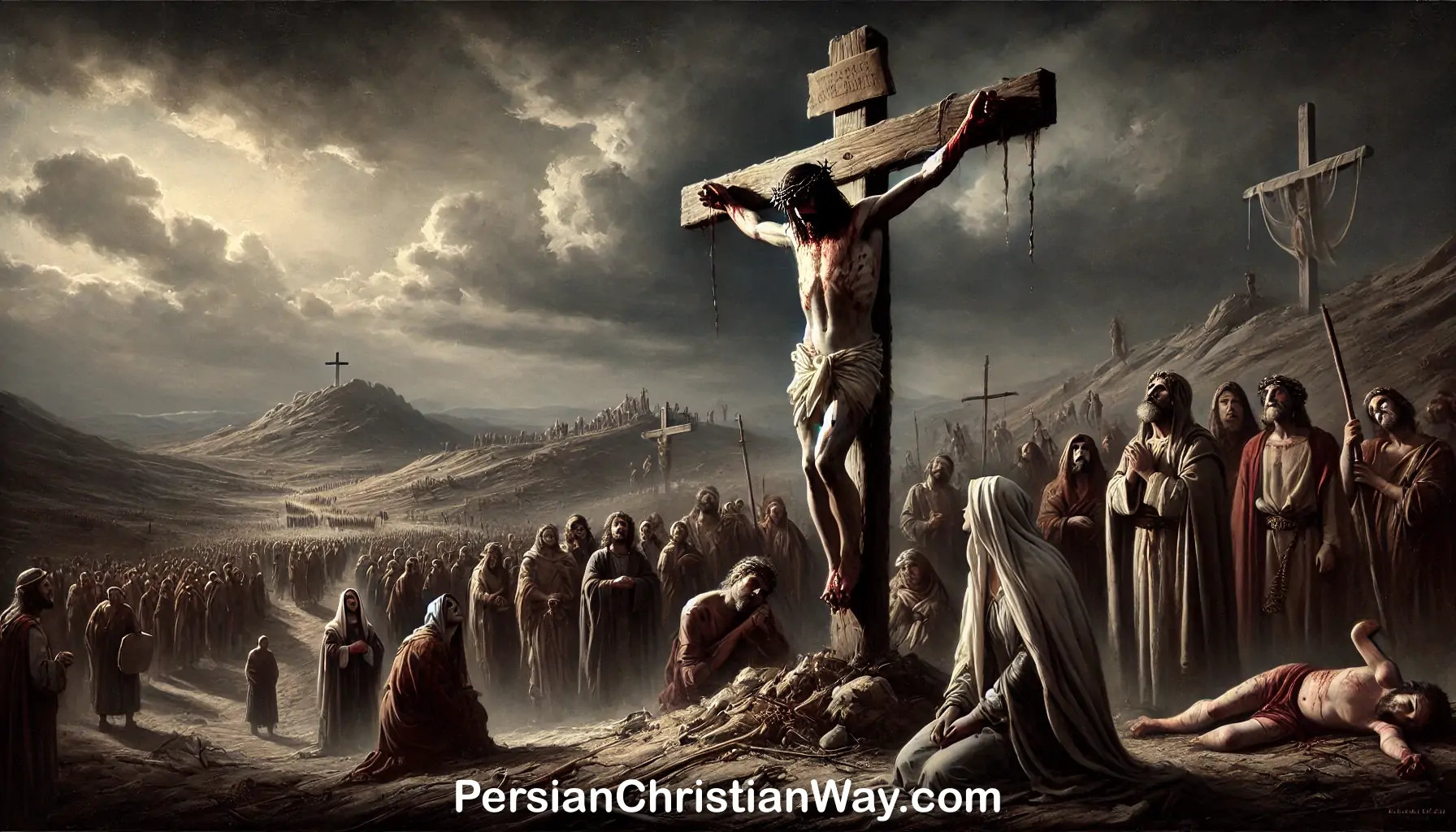
Holy Saturday: A Day of Silence and Reflection
Holy Saturday is the day when Jesus was laid in the tomb after his death. This day is recognized as a day of silence and reflection on the life and sacrifice of Jesus. Christians engage in prayers and contemplation on this day, preparing to celebrate Easter and the resurrection of Christ.
Preparation for Resurrection
On this day, Christians reflect on Jesus’ sacrifice in silence and prayer. Churches usually hold ceremonies for the spiritual preparation of their followers on this day.
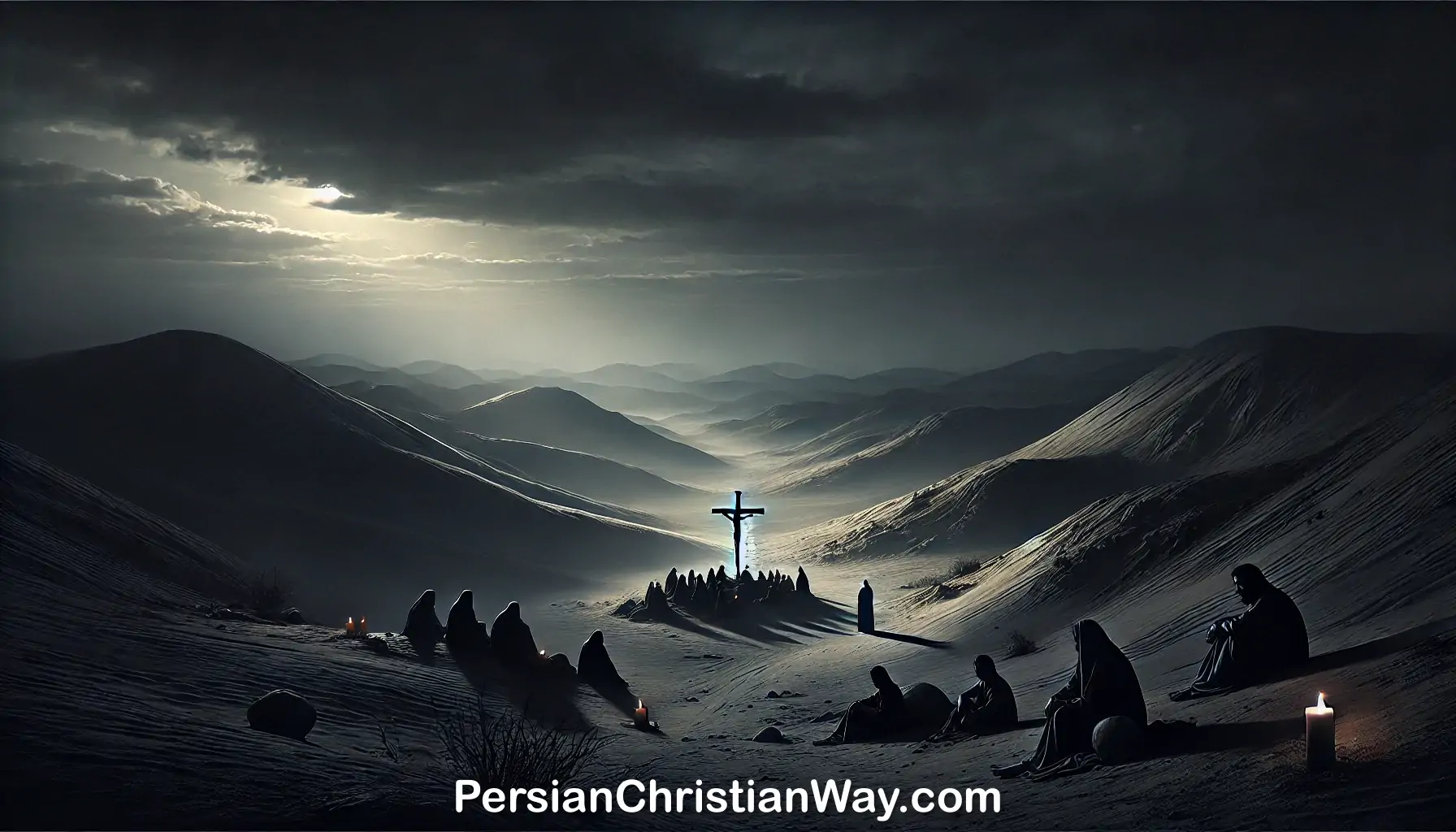
Palm Sunday: The Triumphant Entry of Jesus into Jerusalem
Palm Sunday marks the beginning of Holy Week and commemorates the triumphant entry of Jesus into Jerusalem. On this day, people welcomed him with palm branches and recognized him as the king and divine prophet.
Traditions of Palm Sunday
On this day, Christians hold special ceremonies in churches with palm or olive branches in remembrance of the people’s welcome to Jesus. This day signifies the beginning of Holy Week and is accompanied by prayers and supplications.
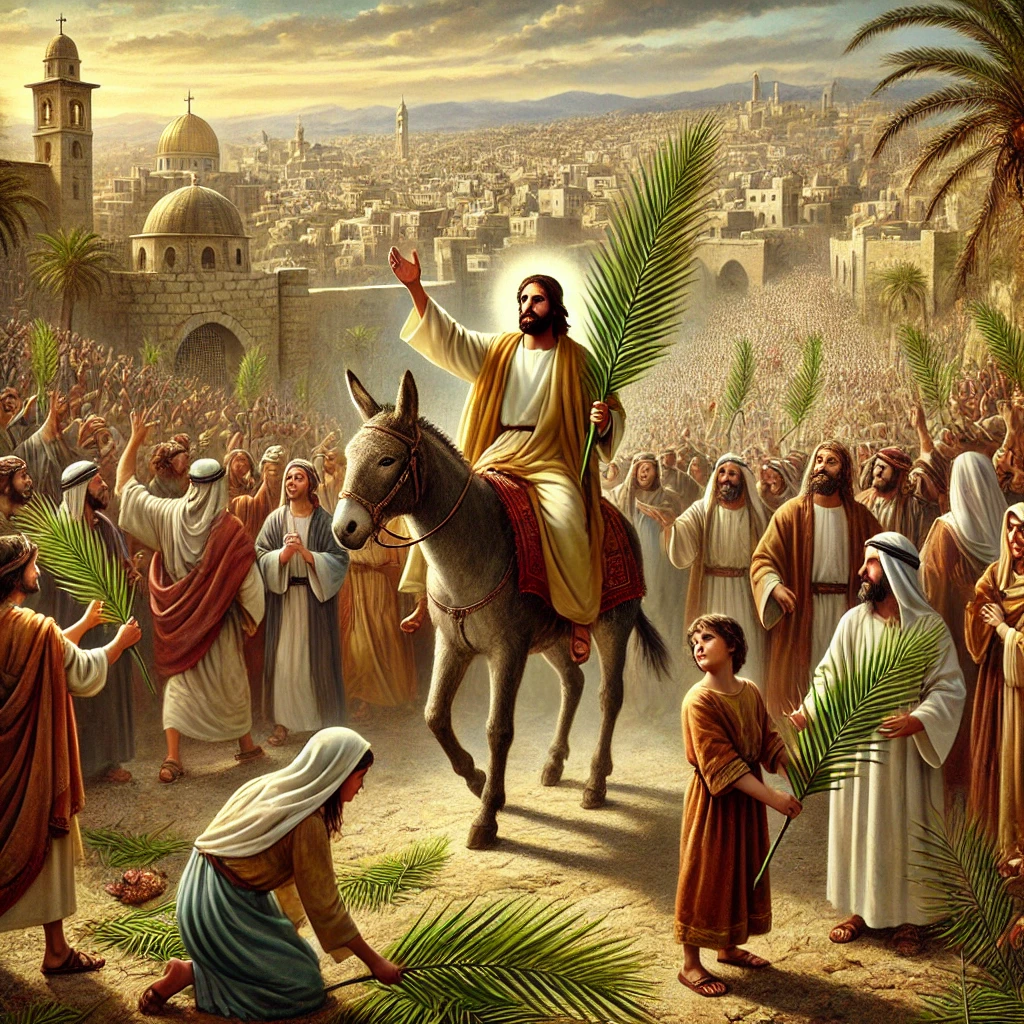
Pentecost: The Descent of the Holy Spirit
Pentecost is celebrated 50 days after Easter and refers to the descent of the Holy Spirit upon the Apostles. This day is recognized as the birth of the Christian Church.
Importance of Pentecost
On this day, the Holy Spirit descended upon the Apostles in the form of flames of fire, empowering them to spread the message of Jesus Christ throughout the world. Churches hold ceremonies to commemorate the descent of the Holy Spirit on this day.
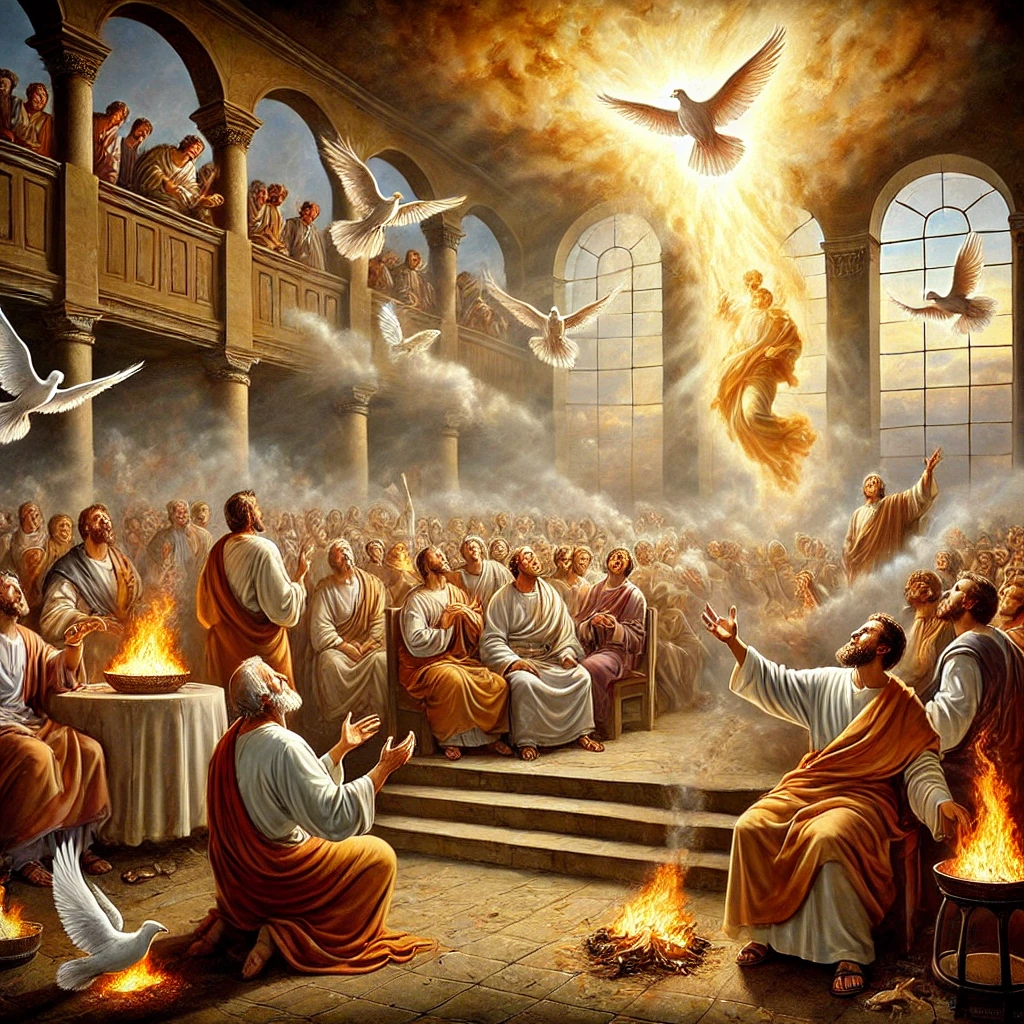
Ascension Day: The Return of Jesus to Heaven
Ascension Day is celebrated 40 days after Easter and commemorates the ascension of Jesus Christ to heaven. This day signifies the end of Jesus’ physical presence on earth and his return to the heavenly Father.
Importance of Ascension Day
This day is honored in churches with special prayers and supplications and is recognized as one of the most important events in the history of Christianity.
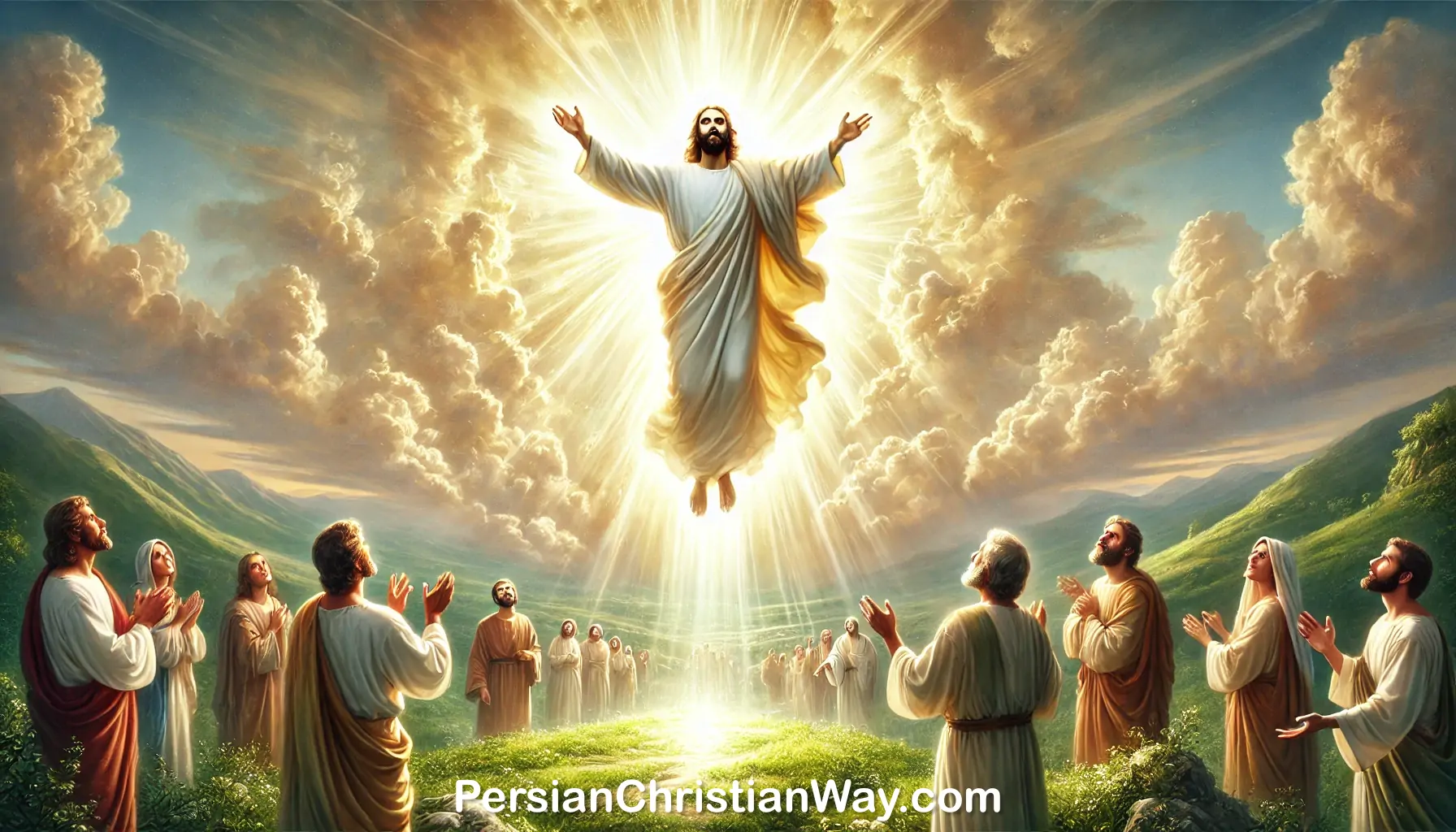
Trinity Sunday: Commemoration of the Holy Trinity Teaching
Trinity Sunday is celebrated one week after Pentecost and is dedicated to the commemoration of the Holy Trinity teaching (Father, Son, and Holy Spirit). This day addresses one of the main teachings of Christianity and is accompanied by special ceremonies in churches.
Lenten Season: Time of Fasting and Repentance
The Lenten season is a period of repentance and fasting that begins 40 days before Easter. This period symbolizes the 40 days that Jesus spent in the desert confronting the temptations of the devil.
Traditions of the Lenten Season
During this time, Christians engage in fasting and prayers for spiritual purification and preparation for the celebration of the resurrection of Christ. This period is seen as an opportunity for returning to faith and strengthening the spiritual bond with God.
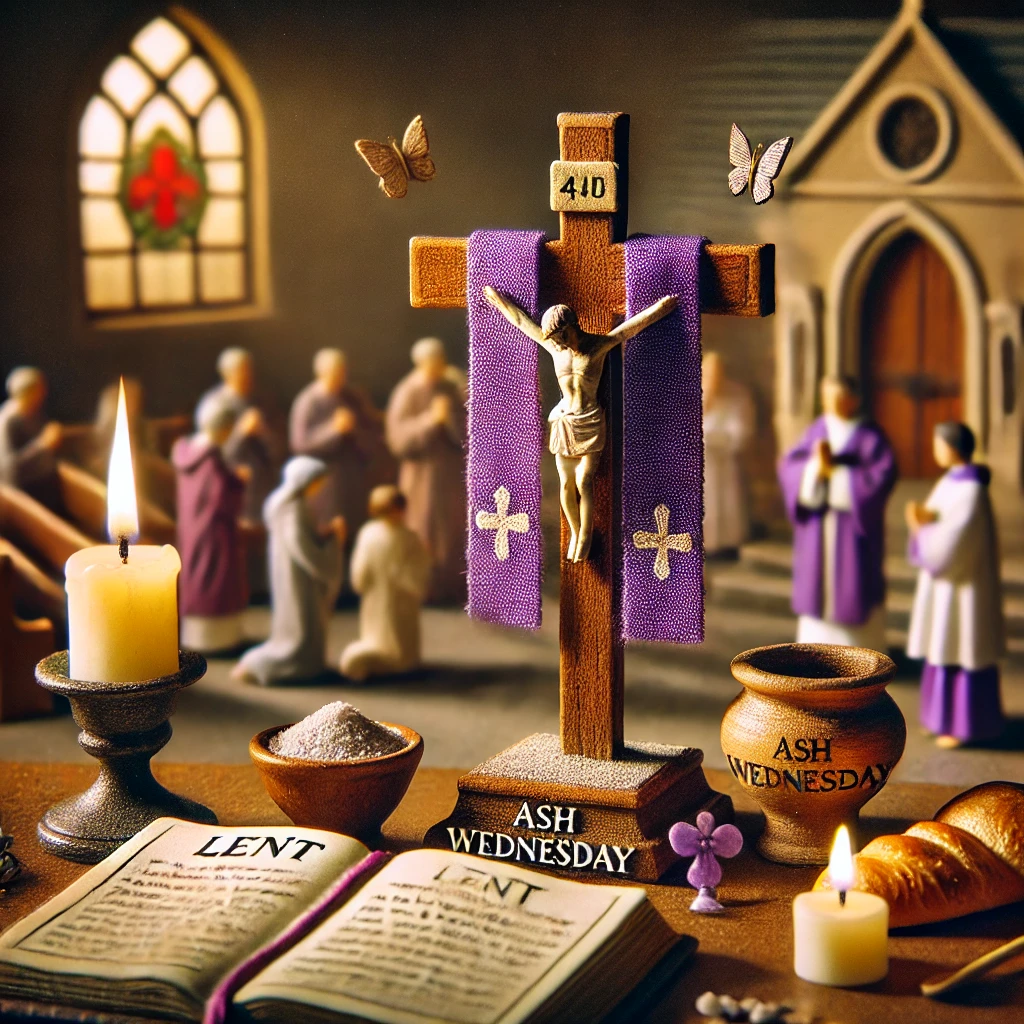
Annunciation: Announcement of Mary’s Pregnancy
The Annunciation, celebrated on March 25, commemorates the announcement by the angel Gabriel to Mary regarding her pregnancy with Jesus Christ. This day is celebrated as one of the most important holidays in various churches and signifies the beginning of a divine mission.
Palm Sunday: The Triumphant Entry of Jesus into Jerusalem
Palm Sunday is celebrated one week before Easter and commemorates the triumphant entry of Jesus into Jerusalem. This day is part of the Holy Week celebrations in churches.
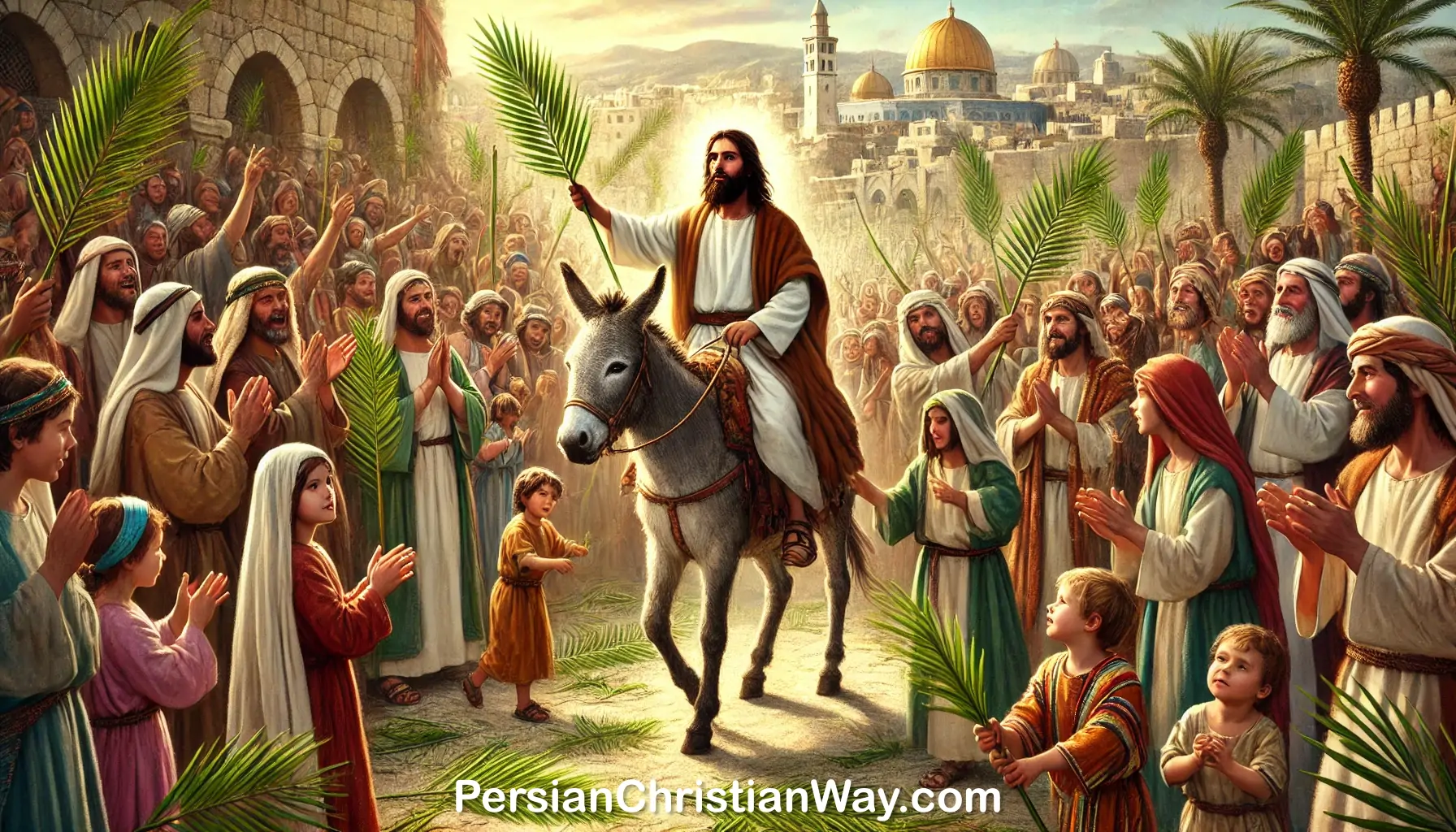
Conclusion
Christian holidays each have profound meanings that help strengthen the faith of Christians and their connection to God. These celebrations provide opportunities for reflection on the teachings of Christ, joy, and unity among families and Christian communities.
Questions and Answers
When is Christmas celebrated?
Christmas is celebrated on December 25 each year and is honored as the day of the birth of Jesus Christ.
What is Easter?
Easter is the day when Christians commemorate the resurrection of Jesus Christ from the dead and is one of the most important holidays in Christianity.
What does Good Friday mean?
Good Friday is the day of the crucifixion of Jesus Christ and is considered one of the saddest days in the Christian calendar.
When is Pentecost celebrated?
Pentecost is celebrated 50 days after Easter and refers to the descent of the Holy Spirit upon the Apostles.
What is the Lenten season?
The Lenten season is a 40-day period of fasting and repentance that begins before Easter and is dedicated to the spiritual and moral purification of Christians.
What is Palm Sunday and when is it celebrated?
Palm Sunday is celebrated one week before Easter and refers to the triumphant entry of Jesus Christ into Jerusalem. This day is celebrated as one of the most important religious events in Christianity.
What does Pentecost mean?
Pentecost is celebrated 50 days after Easter and refers to the descent of the Holy Spirit upon the Apostles. This holiday is recognized as the birthday of the Christian Church.
What is the purpose of the Lenten season?
The Lenten season is a 40-day period of repentance and fasting that begins before Easter. The purpose of this period is spiritual purification and preparation for the resurrection of Jesus Christ.
When is Good Friday celebrated?
Good Friday is the day before Easter and is celebrated in remembrance of the crucifixion of Jesus Christ. On this day, Christians engage in prayers and supplications.
What role does Epiphany play in Christianity?
Epiphany, celebrated on January 6, commemorates the visit of the Magi to the newborn Jesus. This holiday signifies the manifestation of Jesus as the Savior of the world.
What does the Easter egg symbolize?
The Easter egg symbolizes new life and the resurrection of Jesus Christ. In many cultures, people decorate colorful eggs as a sign of rebirth.
What is Holy Saturday and when is it celebrated?
Holy Saturday is the day before Easter and commemorates the day Jesus was in the tomb. This day is recognized as a time of silence and reflection for Christians.
What does Ascension Day mean?
Ascension Day is celebrated 40 days after Easter and refers to the return of Jesus Christ to heaven. This day is recognized as the end of Jesus’ physical presence on earth.
When is Trinity Sunday and what does it mean?
Trinity Sunday is celebrated one week after Pentecost and is dedicated to the teaching of the Holy Trinity (Father, Son, and Holy Spirit). This day is celebrated as one of the most important teachings of Christianity.
When is the Annunciation celebrated?
The Annunciation is celebrated on March 25 and commemorates the announcement by the angel Gabriel to Mary about her pregnancy with Jesus Christ. This holiday is recognized as the beginning of Mary’s divine mission.





